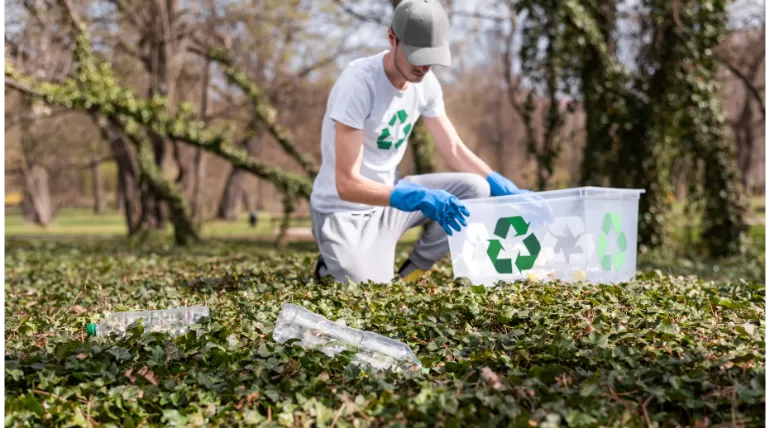
- CSR PLASTIC | Clean Society by Recycling | Sustainability
Can Polyethylene Be Recycled in the UK
Can Polyethylene Be Recycled in the UK?
CSR Plastic ensures the recycling of polyethylene plastic in the UK. Polyethylene is one of the most widely used thermoplastics globally. It has a broad range of applications in both daily life and industry, particularly noted for its high resistance to chemicals.
Polyethylene (PE), used in the manufacture of various products, comes in high and low densities. Different forms are molded to create new products. Moldable polyethylene:
- Absorbs little water
- Is hard
- Is durable
- Has dimensional stability
Low-density polyethylene is referred to as LDPE, while high-density polyethylene is known as HDPE. Polyethylene is produced by the polymerization of ethylene.
Polyethylene Applications
Polyethylene is used in the following areas:
-
Food Industry
- Polyethylene's important feature is that it does not harbor bacteria. Additionally, it can be easily cleaned, making it suitable for the food sector, especially in hygienic environments such as meat cutting areas.
-
Paper Industry
- Polyethylene is highly resistant to moisture and water. Because it absorbs moisture, it is widely used in the paper industry. An example of its use is in hydrofoil case materials.
-
Medical Industry
- Due to its non-staining and easy-to-clean properties, polyethylene can be used in the medical industry. It is crucial for making orthopedic products from a hygiene perspective and can also be used in thermal applications due to its easy moldability.
-
Chemical Industry
- Polyethylene (PE) is also prevalent in the chemical industry. It is used to make products such as:
- Pumps
- Materials in wastewater treatment plants
- Chemical tanks
- Valves
- Cylinders
- Bellows
- Polyethylene (PE) is also prevalent in the chemical industry. It is used to make products such as:
-
Mining Industry
- Polyethylene is utilized in mining industries where various minerals, including coal, are produced and processed. It helps prevent coal dust from dispersing into the air.
Other applications of polyethylene include:
- Children's play areas
- Electronic part stabilizers
- Spools
- Automotive fixtures
- Various machine parts
- Acid tanks
- Filter plates
- Kitchen countertops
Types of Polyethylene
The types of polyethylene include:
-
High-Density Polyethylene (HDPE)
- HDPE is a highly dense plastic, very resistant to chemicals and water, with high tensile and impact strength. Its temperature rating is above 100°C. HDPE is used in hard plastics for products such as shampoo bottles, detergent containers, and bleach bottles.
-
Low-Density Polyethylene (LDPE)
- LDPE has very low density. It is much softer than HDPE and is often used in products like garbage bags. LDPE has a very low crystalline content and is transparent.
-
Ultra-High Molecular Weight Polyethylene (UHMWPE)
- UHMWPE, a type of polyethylene, is noted for its high wear resistance. Its robust structure makes it suitable for industrial applications.
-
Linear Low-Density Polyethylene (LLDPE)
- The molecular structure of LLDPE is almost identical to LDPE. The primary characteristics of LLDPE are its extensibility and high tensile strength, making it suitable for stretch films.
Properties of Polyethylene
The properties of polyethylene include:
- High resistance to abrasion
- High resistance to water and moisture
- High resistance to cracking
- Easy to process
- Resistant to acidic chemicals
- Does not harbor bacteria
- Lightweight
- Easy to use
- Resistant to both cold and heat
Polyethylene can be colored in:
- Orange
- Black
- White
- Brown
- Blue
Polyethylene is also highly resistant to UV rays. You can contact CSR Plastic's expert team to learn all the details about polyethylene.




